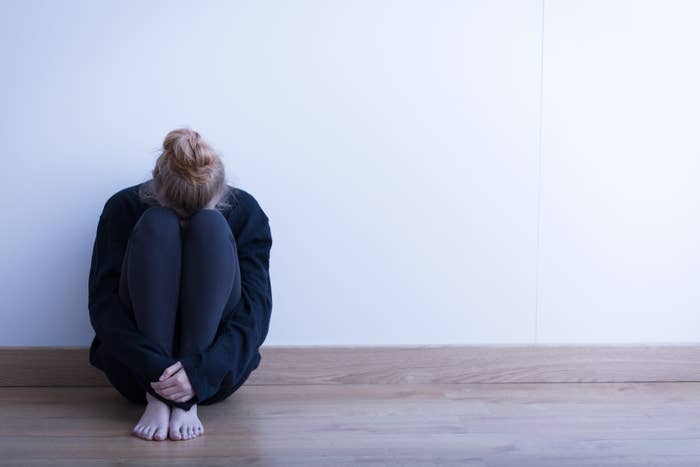Watching someone you care about experience depression is heartbreaking and can make you feel helpless.

So we asked Dr. Robin Henderson, PsyD, our questions to see what we can do to make a positive difference.

1. How do we know when someone is experiencing depression if they don’t tell us they are?
"Ever notice when someone seems 'off' — they don’t return calls, stay away from social situations, seem overly tired, and may cry easily and often? While these aren’t all the signs, they are some that friends notice first. That’s a good time to take the first step and ask."

2. How should we talk to this person about it?
"Start with the basics. 'How are you doing?' Also, 'Is everything OK? You seem kinda down lately. I want to help — let’s talk.' Then, do the hard thing. Be quiet, be present, and just listen."
3. What can we do besides listen?
"Listening is good, but it’s not always enough. Let them know that depression is treatable — with great success. Let them know they aren’t alone and that they aren’t the first person to have depression. Normalizing things is a great way to take the first step to getting help."

4. How should we ask someone with depression if they want help? Where do we get started?
"Many people are more comfortable talking to their primary care doctor than they are seeking mental health treatment. Great! Many primary care doctors have behavioral health providers in their clinics these days! Many also screen for depression. Asking someone when the last time they saw their doctor — and even helping them schedule an appointment — is a great first step."

5. What should we do if we’re worried someone is going to harm themselves?
"If you have any reason to believe someone is thinking about suicide or self-harm, it’s time to seek outside help. Call your local crisis line and talk about what you’re hearing. Offer to take them to an appointment with a professional — and go with them to make sure they follow through. If you don’t live with them, make sure someone close to them knows your concerns."
6. What should we do if someone has suicidal thoughts in general but is already seeing a therapist?
"While a therapist can’t talk to you [as a non-patient], you can always talk to them. If you know who their therapist is, give them a call and tell them your concerns —but don’t press for information."

7. What should we do if someone has suicidal thoughts in the moment we're with them?
"If someone has suicidal thoughts, it’s best to call your local suicide hot line and discuss options for an assessment. Make sure someone stays with them and that they feel safe. Most of all, seek professional help, and if you’re concerned about a suicide attempt, definitely seek help from the local county crisis team or even your local emergency room."

8. Are there lifestyle changes we can help institute that can make a difference?
"Absolutely! Self-care is a great way to help with depression. Getting exercise, fresh air, sunshine, and healthy food, and cutting back on alcohol, can all be helpful ways to ease symptoms — especially when done with a friend. Sign up for a spin class together. Cook dinner, and talk while you’re cooking. And be sure to get some sunshine. Seasonal affective disorder affects many more people than they realize. We need sunshine in our lives!"

9. What shouldn't we say to someone with depression?
"'Get over it! You don’t have anything to be depressed about.' 'Buck up! This too shall pass!' Anything that minimizes their experience isn’t helpful and could even be harmful."
10. It can be hard not to take our loved one’s depression personally. What’s a good way of dealing with the guilt and powerlessness that can come along with this?
"Self-care is important. Remember that no one can 'cause' depression in another
— and unless you’re a trained professional, you can’t stop it either. There’s a big difference between empathy and sympathy, so be sure to protect your own boundaries. Don’t join someone in their depression."

11. Where should we start looking for help once we know someone needs it?
"The best place to start is usually with someone’s insurance company. Many insurers have limited panels, and you need a referral that will be covered. Most insurers will help and provide leads for therapists. Primary care physicians also have referrals."
